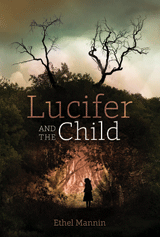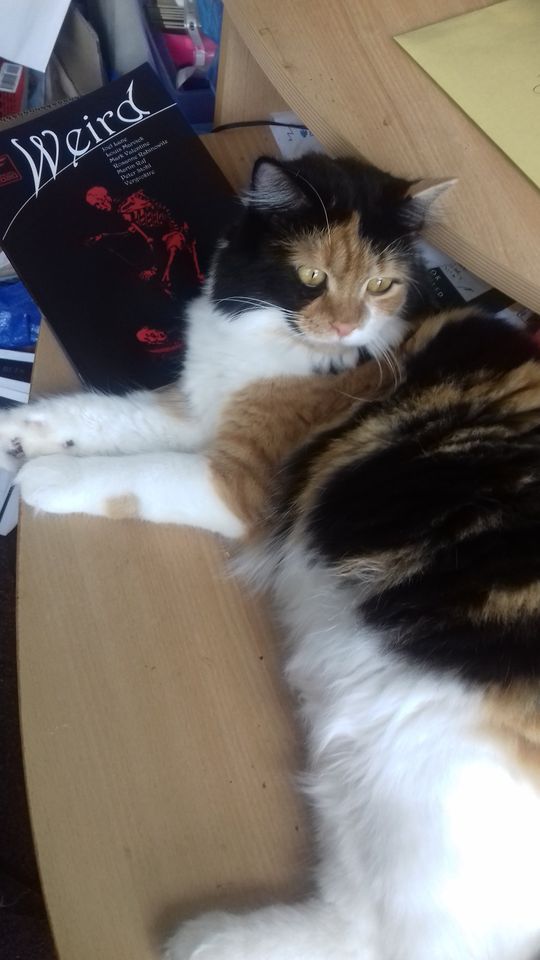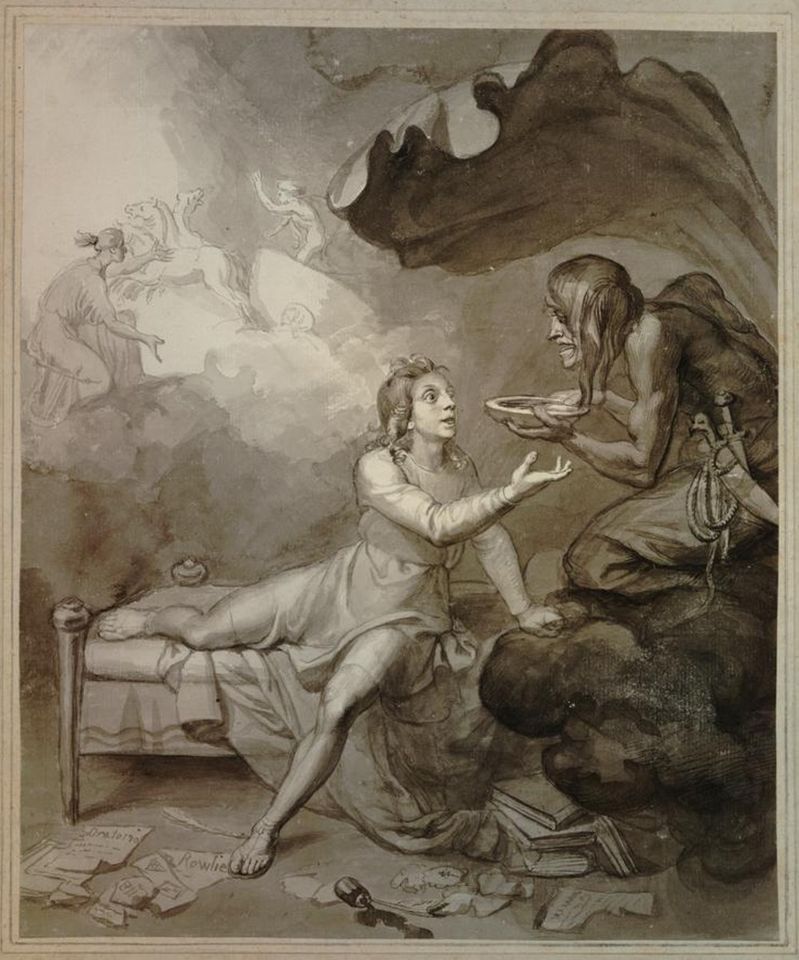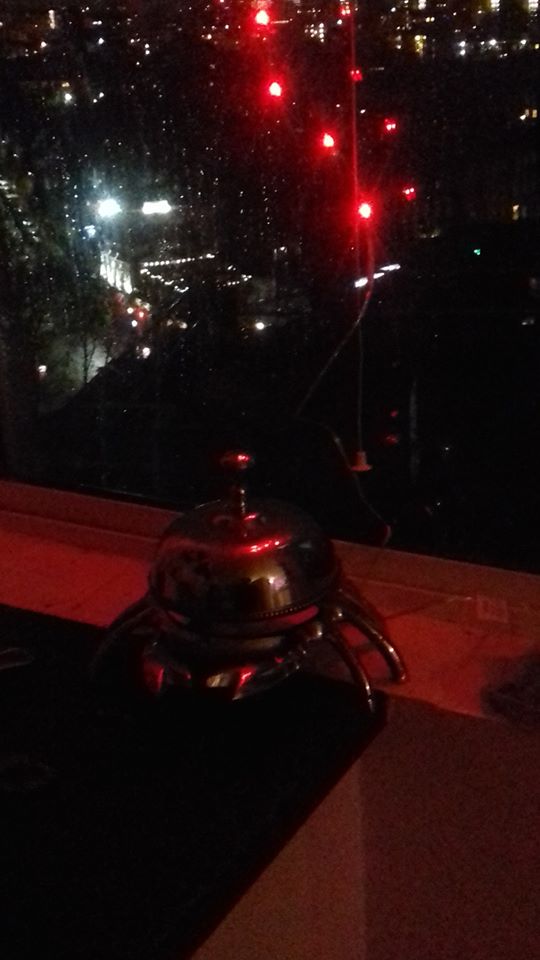All That is Solid is getting a third print outing – in German as Alles, was fest ist. This will also be my first ever publication in translation, which is very exciting. The story first appeared in 2017 in the Swan River Press anthology The Scarlet Soul: Stories for Dorian Gray, a limited edition that sold out quickly and it re-emerged as a chapbook from Eibonvale Press in 2019
And this time around, German imprint White Train is publishing it in a special issue of Weird alongside stories by Joel Lane, Louis Marvick and Mark Valentine. In addition, Weird contains an update of a tribute to Joel Lane that I wrote for this blog in 2014. Weird is available at this link and you can also visit the websites for White Train and its sister publication Night Train to find out more.
Meanwhile the Eibonvale Press chapbook of All That is Solid has recently been reviewed by Stephen Theaker for the British Fantasy Society: “This is a compassionate and sensitive portrayal of what it has been like for our friends from the continent in recent years.”
The BFS also ran a review of Resonance & Revolt back in June. Pauline Morgan offers a perceptive account of some of the stories and themes that unite them across time and location.
“In the majority of stories, whenever and wherever they are set, characters are either engaged in revolution or have actively participated in protest in their past. It is perhaps significant than often they are older and have moved on from an idealistic youth. At the same time, many of the stories have a resonance, not just with the past of the participants but with other pasts and other stories… Most readers will find something among them that they will enjoy but don’t expect them to be conventional.”
Given that it’s been a year or two since publication, I appreciate the way the BFS highlights books that its reviewers find interesting regardless of publication date. I often read books several years after publication so why review them only when they’re hot off the presses?
In other news, a fine review of Lucifer and the Child came out on the Pretty Sinister blog.

“Ethel Mannin explores ethics, morality, faith, love, the inherent magic of the natural world and the ultimate mystery of devotion — both earthly and spiritual — and does so with stark frankness, uncensored sexuality and near mockery of convention… Lucifer and the Child uses a supernatural motif that makes one recognize that magic is ever present in the world. That the wonders of the natural world are as hypnotic as any spell or incantation chanted in a candlelit kitchen. And yet there is danger in that attractiveness and seduction of the unknown.”
The reviewer also has some kind words for the intro from yours truly: “The book includes a well researched foreword by scholar Rosanne Rabinowitz which sheds light on the novel’s re-discovery and Ethel Mannin’s fascinating life as an iconoclast and counterculture figure.”
Lucifer and the Child is also discussed in this episode of the Censored Podcast, a series that looks at books that have been banned in Ireland at one time or another.
In terms of new work, my story The Poison Girls will appear in what will undoubtedly be another beautiful Egaeus Press anthology, Bitter Distillations. Watch this space for more news! Egaeus hints at what’s to come:
“The book will comprise of eighteen sinister and intoxicating pieces courtesy of Ron Weighell, Timothy J Jarvis, Damian Murphy, Kathleen Jennings, Lisa L Hannett, George Berguño, Yarrow Paisley, Stephen J Clark, Joseph Dawson, Carina Bissett, Alison Littlewood, Rose Biggin, Jonathan Wood, Nina Antonia, Rosanne Rabinowitz, Louis Marvick, Sheryl Humphey and Jason E. Rolfe.”
And now, let’s move from poisons to pathogens… With another lockdown in force I’ve added a few more tunes to my playlist on Spotify. Recent additions include Skating Polly’s “Morning Dew” (much better than the Grateful Dead version) and Black Sabbath’s “Paranoid”, inspired by this excellent article in the Guardian about the class content of Sabbath’s songs.
You can find the playlist here and you can also read my blog post I Wanna Dance Like We Used To on the background to some of the songs I chose. Enjoy!
Personally, this lockdown differs from the first in several respects. “Support bubbles” mean I can continue to see my partner. And just as crucial (let’s face it), I now have a cat! Her name is Arya Up – named in homage to the stabby Game of Thrones character and the late Slits singer Ari Up. You’ve seen her snuggling with my author’s copy of Weird at the top of the page. Ari has also shown a great affinity to Zadie Smith, shown by her constant cuddling with a library copy of Grand Union. I first thought it had something to do with the ribbon bookmark with a tassly bit at the end (visible on the lower left of the photo) but maybe it is about the content after all. I hope to devote a post to Ari and the part that cats have played in my life in the not-too-distant future.
As I’m posting this, it looks likely that Trump will lose the US election. It will be such a joy to see the orange squit ejected.
Yes, the struggle will still continue on altered terrain. And we also have a lot of Downfall parodies ahead of us. Here’s one to start…









